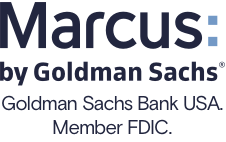Google, Walgreens and H&R Block Want to Be Your Bank

Many, or all, of the products featured on this page are from our advertising partners who compensate us when you take certain actions on our website or click to take an action on their website. However, this does not influence our evaluations. Our opinions are our own. Here is a list of our partners and here's how we make money.
Editor’s note, March 5, 2024: Google Pay will be shutting down in the U.S. on June 4, 2024. Users can transfer any balance out to their bank account using the app before that date (or use the website version after that date). Those who want to tap to pay in stores will still be able to use Google Wallet, but Google will no longer have a peer-to-peer transfer option.
When you think about Google, Walgreens or H&R Block, what comes to mind is probably searching the web, picking up a prescription or getting your taxes done — not writing checks, building an emergency fund or setting up automatic bill payments. But these companies are part of a growing trend of nonbank brands offering banking services.
Making banking services available gives retailers, brokerages and other companies another way to engage with customers, with the aim of building loyalty and keeping those customers within their ecosystems for longer. For customers, it can mean convenience and a better tech experience — but also extra costs and the potential for confusion.
To be clear, these companies aren't actually becoming banks. That would require obtaining a bank charter — a process that can be long and expensive and would subject the company to extra regulatory scrutiny, says Francisco Alvarez-Evangelista, a research associate at the Aite Group, a financial services analysis firm.
Instead, they are partnering with existing banks that are chartered and regulated and offer federal insurance for customer deposits. The partner banks handle the regulatory and security responsibilities and do the work of actually managing checking, savings and other accounts, while the companies focus on branding, marketing and customer engagement.

Member FDIC
Discover® Cashback Debit

N/A
$0

Member FDIC
Chase Total Checking®

N/A
$12

Deposits are FDIC Insured
Chime Checking Account

N/A
$0
Banking offerings from nonbanks
Unveiled in late 2020 and projected to roll out this year, the much-hyped "Plex" accounts are mobile-first checking and savings accounts directly integrated into the Google Pay app. Google is partnering with about 10 financial institutions, ranging from big national banks to regional banks and credit unions, and customers will be able to choose which one they want to open an account with.
Google's wide reach and vast data-collection capabilities may lead consumers to wonder about whether or how the tech giant will use banking or transaction information from Plex accounts. But the company says such data is private.
"We take privacy of financial information very seriously and took a privacy-forward approach to Google Pay," said Josh Woodward, director of product management at Google Pay, via email. "Google Pay does not sell your data to third parties or share your transaction history with the rest of Google for targeting ads."
Walgreens
Walgreens announced in March that it will launch a bank account in the second half of 2021 in partnership with MetaBank. The pharmacy chain said in a news release that the account — which comes with a debit card and is covered by the Federal Deposit Insurance Corp. through MetaBank — will complement its current services and enhance its loyalty program and customer personalization. The company said customers will be able to sign up in-store as well as online.
H&R Block
The tax-prep chain has expanded the capabilities of the H&R Block Emerald Prepaid Mastercard account beyond simply having tax refunds loaded onto it. Issued in partnership with MetaBank, the card allows customers to make purchases, receive direct deposits, share finances with a partner, withdraw cash, pay bills and perform other money management tasks. There are fees for some of the card’s services, such as reloading cash and making ATM withdrawals.
Potential upsides and downsides
These brand-supported accounts may appeal to consumers for several reasons. Among them:
Familiarity. If you're already using Google Pay for purchases or the Walgreens app for shopping and prescription refills, for example, you can manage your bank accounts through an interface you're used to. If you have an H&R Block card because a refund was loaded onto it, you can run more of your financial life through it.
User experience. Bank apps and websites aren’t always very user-friendly. Businesses that are more consumer-oriented may be able to leverage their technical talent to create a better user experience than traditional banks.
There are also risks or potential downsides, including:
Costs. Signing up for a bank account because it's integrated with an app you use means you might not be comparison shopping. The interest, if any, on your deposits may be comparatively low, or the fees you pay for services may be comparatively high. Interest rates are fairly low across the board right now, but there are still some institutions that able to offer higher-than-average rates.
The partner bank. Your money is ultimately held by the partner bank, and it is that bank's policies and procedures that could dictate whether the account meets your needs. When problems arise, you may be dealing with the bank's customer service rather than the brand's, which might not be the best experience.
Alvarez-Evangelista notes that it is in companies' interest to partner with banks that provide good service. From the brands' perspective, "the biggest risk is reputational," he says. "If one of these programs fails or doesn’t meet the expectations of consumers, the retailer is associated with it."










